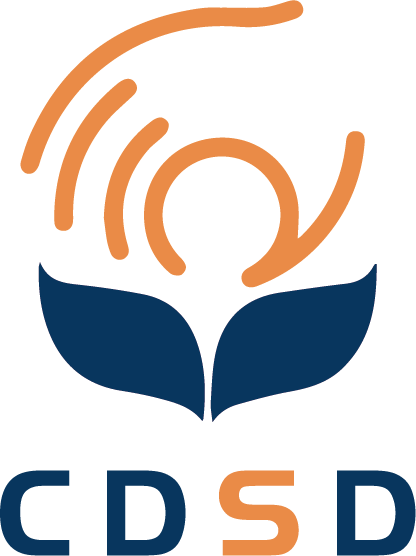
Speakers
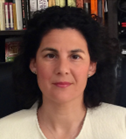
Assoc. Prof. Dr. Soraya Garcia-Esteban
School of Education, University of Alcala, Spain
Research Area:Teacher Training, Plurilingualism, CLIL, Global /Competence-Based Education, SDG
Brief introduction:
Assoc. Prof. Dr. Soraya Garcia-Esteban holds a Ph.D. in Modern Languages, Literature and Translation from Alcala University (UAH) and a M.A. from University of the West of England. After years of experience in several European higher education institutions, she is the current coordinator of the UAH-MFP Master of Education (English) and full-time lecturer in Teacher Training, ESP, CLIL and ELT methodology in Alcala University. Her interest and participation in several European (Erasmus+) projects, as well as in international innovation and research related to educational virtual exchanges for competence development in EMI contexts integrating technology, pedagogy, and content knowledge (TPACK), has resulted in more than a hundred academic communications and publications. Dr. Garcia-Esteban is the current director of the UAH innovation project:“INEDCOM-HITA: Interdisciplinary Interpretation of the Middle Ages for Competence-based Education.
Speech Title:
Culture for Education in Sustainable Development: a competence-based interdisciplinary project
Abstract:
Culture can promote Education for Sustainable and Competence Development with service learning. Based on this premise and taking cultural heritage as a learning object, this communcation proposes didactic actions and strategies to integrate community service and academic learning from an interdisciplinary persective (i.e. literature, language, art, history, etc.) to develop different key competences (i.e. linguistic, multilingual, digital, cultural awareness and expression, etc.) and specific ODS (i.e. Quality education, Sustainable communities, strong institutions, etc.) using specific resources and methods.
This innovative project (INEDCOM-HITA) from Alcala University aims to contribute to UNESCO´S idea that all educational institutions ranging from preschool to tertiary education, including both non-formal and informal education, should consider it their responsibility to address sustainable development and to foster the development of key cross-cutting competencies related to sustainability considering the impact of culture from an integrated and comprehensive perspective.
Keywords: culture, teacher training, service learning, key competences, sustainable development goals
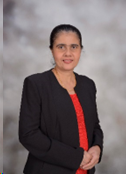
Assoc. Prof. Dr. Manjet Kaur Mehar Singh
School of Languages, Literacies & Translation, Universiti Sains Malaysia
Research Area:Language, literacy, muliticulturalism and research in higher education
Brief introduction:
Assoc. Prof. Dr. Manjet Kaur Mehar Singh completed her B.A. (Education) Hons., (1995), Master in Education (TESOL) (2000) and Ph.D specialising in Academic Literacies and International Students (2013) at University of Science Malaysia. She started her academic career as a language instructor at the Center of Languages and Translation, USM in 1996. As a scholar, Dr.Manjet Kaur’s field of research interests are wide-ranging, which include language, literacy, muliticulturalism and research in higher education.
She is very active in doing research and publishing and is also a member of the editorial board of journals at national and international level.
Other than teaching at undergraduate level, she is also currently supervising Master and PhD students. She has also widely presented at international conferences worldwide. For her contribution to the university, Dr. Manjet Kaur was awarded excellent service award by USM in 2008. As for her contribution to the state of Penang, Dr. Manjet Kaur was awarded the “P.J.K.” award by the Governor of Penang in 2015.
Title of Keynote Speech:
Migration and Language in the Global Context
Abstract:
Migration is a global and contemporary phenomenon that occurs due to multifaceted reasons not restricted to ideological, individual and international. Migration, definitely, is intertwined with language as every individual is the carrier of linguistic and culture baggage. This paper will discuss the ideological, individual and international reasons for migration and the role that language plays in the transition from one country to another as well as the mutual (un)intelligibility among languages in the host country. Migration reasons are basically voluntary or pushed by external factors. How does migration impact language shift and language maintenance of individuals’ owned languages and the languages to be acquired are issues that are worth to be investigated.
Keywords: Migration, Language, Language Shift, Language Maintenance
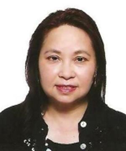
Assoc. Prof. Dr. Purrie Pui-Yee NG
University Beijing Normal University-Hong Kong Baptist University, United International College (UIC), China
Research Area:Culture and creative management, visual arts, exhibitions, media, event and tourism management, cultural heritage studies and crafts (shadow plays), programme and curriculum planning and revalidation
Brief:
Dr. Purrie NG first practiced as an interior designer in residential and commercial projects and as a set designer in Radio Television Hong Kong. Then she joined the Curriculum Development Institute (Visual Arts) of Education and Manpower Bureau as Project Coordinator in curriculum design and teaching materials. Later she attained substantial experience in teaching, exhibition, programme management and revalidation, dissertation guidance and curriculum planning in various colleges.
Title of Keynote Speech:
The relationships between Experience Realms and the University Students’ perception and objectives - An analysis of the Event Planning students in UIC while designing cultural festivals and events
Abstract:
Although events planning and management has been grown for a few decades; however, it seems that little progress was made to be a profession. (Bladen et.al., 2018). In the tertiary institutions, there is a need to conduct more research in order to acquire more understanding between the service-providers and the visitors. Though this research, it aims at exploring the impact of “4E” theory of Experience Realm (Pine and Gilmore 1999) during the event planning stage, the 4 variables include Entertainment, Education, Aesthetic and Escapist events. The students were provided 8 choices from Cultural festivals and events, they were asked to list out 3 characteristics of the events and 3 objectives accordingly (learning, emotional, behavioral objectives). 106 samples have been selected from the course Event Planning and Management offered during 1st and 2nd sem 2022-23. Descriptive data will be solicited through the samples about the relationship between the event planning activities and intended objectives in relation to the 4E theory. The significant values are twofold, firstly, this includes a better understanding of the perception of event planning and objectives from the college students; secondly, this contributes a deeper knowledge of this kind of service design in Cultural & Creative Industries.
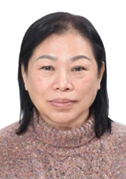
Assoc. Prof. Ashley Yoon Mooi Ng AMN
University of Nottingham Ningbo China, China
Research Area:educational leadership, action research, leadership development, leadership preparation, leadership for learning, school management, teacher professional development, mentoring and coaching, professional learning community, educational policies, gender and leadership.
Brief:
Dr Ashley Yoon Mooi Ng AMN is Associate Professor of Education at the University of Nottingham Ningbo China, where she is currently teaching on the MA in International Higher Education and supervises students on both the EdD and PhD programmes. Prior to joining the University of Nottingham Ningbo China, she was Associate Professor in the University of Nottingham Malaysia where she was Director of Post Graduate Taught Programmes managing all the masters programmes , both in campus and off-shores (Sri Lanka, Mumbai and Singapore). She was also the Director of Training for Future Leaders and Principals for the BCEDP programme, which trained more than 1000 school leaders - a joint partnership between the University of Nottingham Malaysia, the National University of Bangladesh and the World Bank. She also played vital roles in the professional development of international (Sri Lanka) and local school principals. She is often invited to conduct and facilitate workshops and seminars for schools, colleges and universities.
She started her career teaching Geography in secondary schools. She rose from the rank of teacher to Head of Department of Humanities to principal, to senior principal and to the position of Excellent Principal. Her contribution to education in general and schools in particular was recognised by the Ministry of Education with her work chosen to represent Malaysia on national and international levels. One of her work was translated into the Thai language to share with teachers in Thailand. She was the key personnel for action research and principal development in the State Education Department and the Malaysian Ministry of Education. In recognition of her work and contribution to education and schools, His Majesty the King of Malaysia conferred her the AMN (Ahli Mangku Negara) award in 2009. Among her other achievements are the Excellent Awards for Performing Beyond Expectation by the MoE (2010) and Meeting Expectation by UNM (2017 and 2018) and UNNC (2021 and 2022). She was nominated as 'Inspirational Woman' in conjunction with International Women's Day (2019). Currently she sits as a member of the Council of International Global School Leadership and is also the Senior Research Fellow of the Unviersity of Nottingham Malaysia. She contributed to the teaching of the educational leadership strand of the CPQ (Cambridge Professional Qualification) programme between 2020-2022 and currently is often called upon to contribute to sessions on teacher professional development programs in UNNC.
Title of Keynote Speech:
Principal Leadership Styles and Management Behavior in Two Ethnic-Cultural Settings: A Comparative Case Study
Abstract:
Research on educational leadership and management has shown that successful leaders view their organizations’ environment in a holistic way. This wide-angle view offers school principals the concept of school culture, which provides a wider framework for understanding complex relationships and solving problems within the school. By taking into consideration the school cultural context, school principals will be better equipped to shape the values, beliefs and attitudes that are prerequisites to promoting a stable and nurturing learning environment. This presentation is based on an exploratory study, which seeks to illuminate the situational dynamics of leader-followership, to disclose the genesis and development of principals’ value frameworks and work styles in the two mainstream schools in Malaysia, the ethnic Malay-majority and ethnic Chinese-majority school. The objectives of the study were: 1) to profile and compare the distinctive characteristics of the two respective school principals; 2) to study the school principals’ leadership style and management behaviour of the two schools and how they interacted with the school culture. Through observations, interviews and close interactions with the teachers and school principals, the data collected showed how school culture and context combined with the principals’ personal attributes shaped their leadership and management behaviour. Teachers’ perception of their respective principals’ leadership style and management behaviour was obtained through the PIMRS and MLQ. The results show that there were significant differences in the head teachers’ leadership style and management behaviour. The study also showed that there were distinctive differences in the values that the two schools focused on.
UPDATING....


